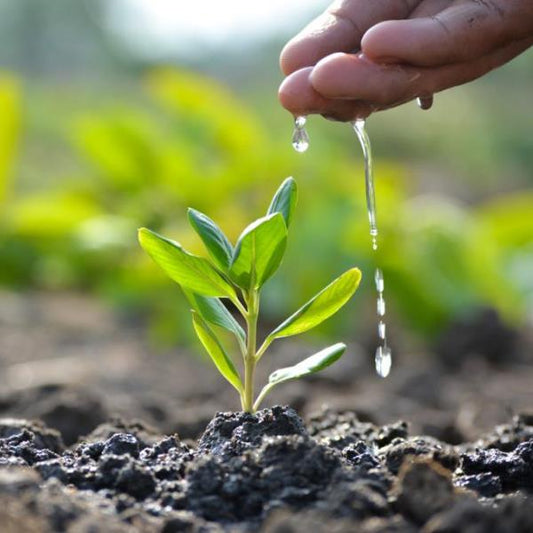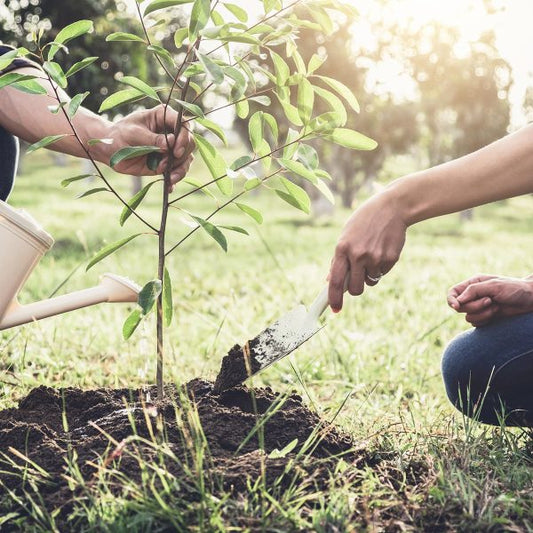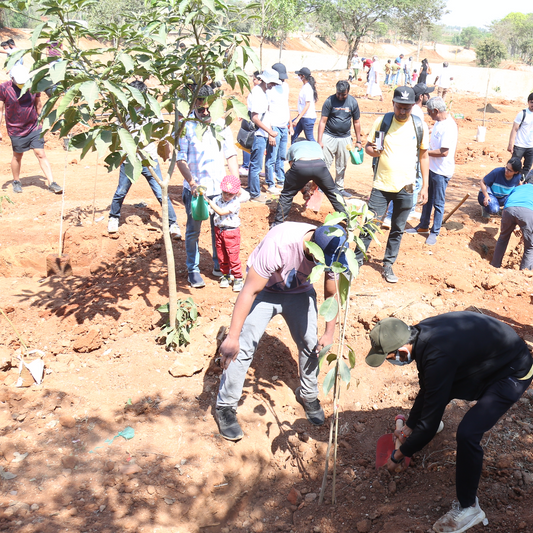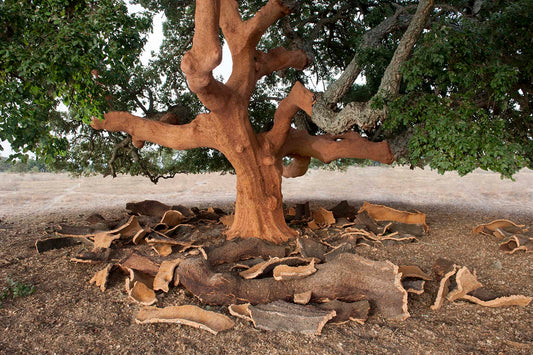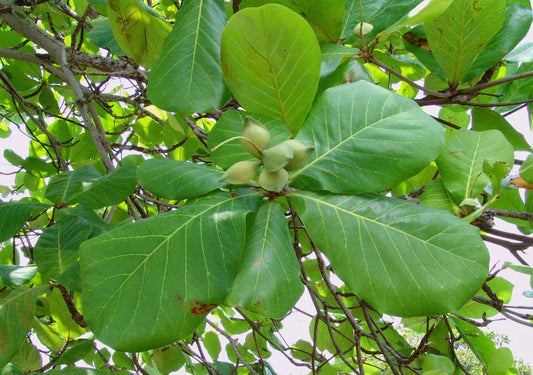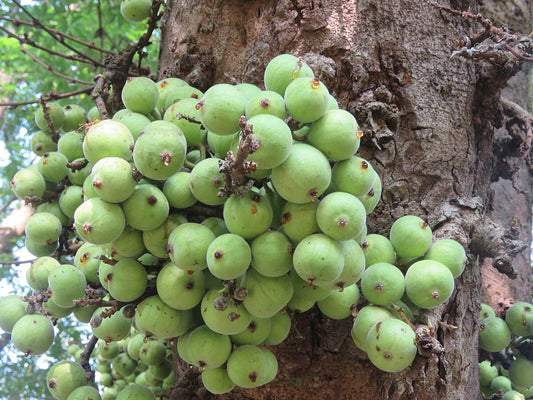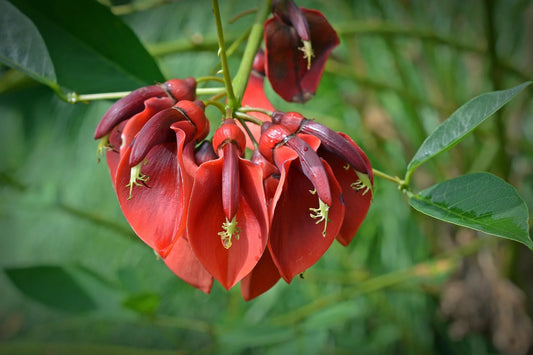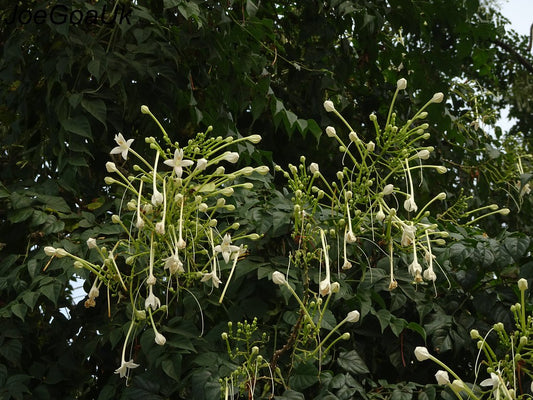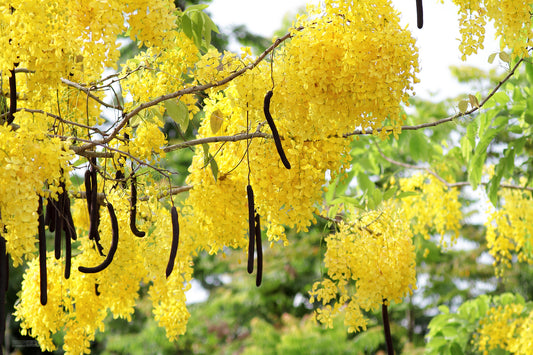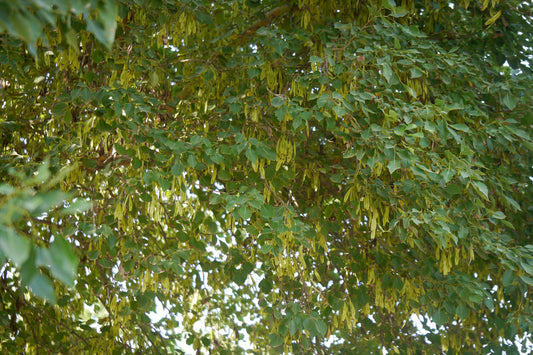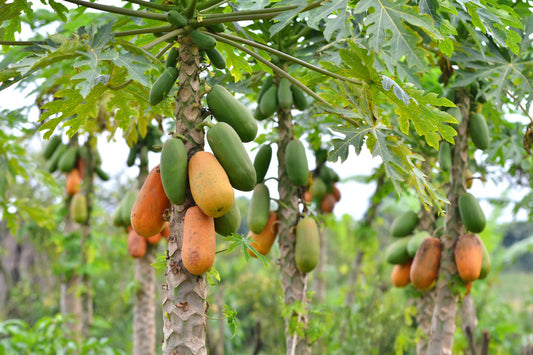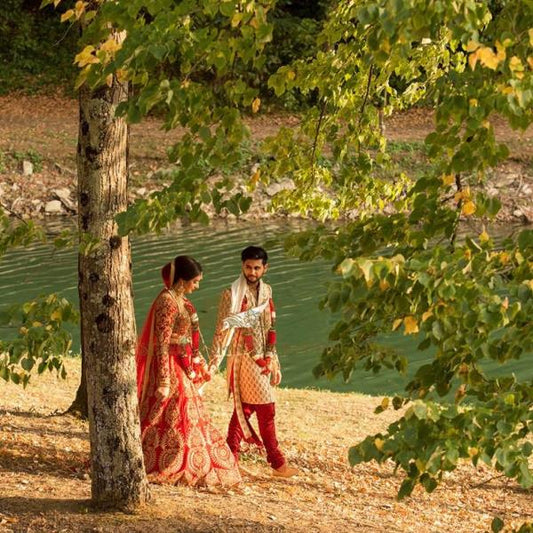
Best Native Trees to grow near Bangalore: Metropolitan Foliage
Nestled amidst the dynamic urban landscape of Bangalore lies a rich tapestry of native trees, each contributing to the city's natural beauty and ecolo Read more
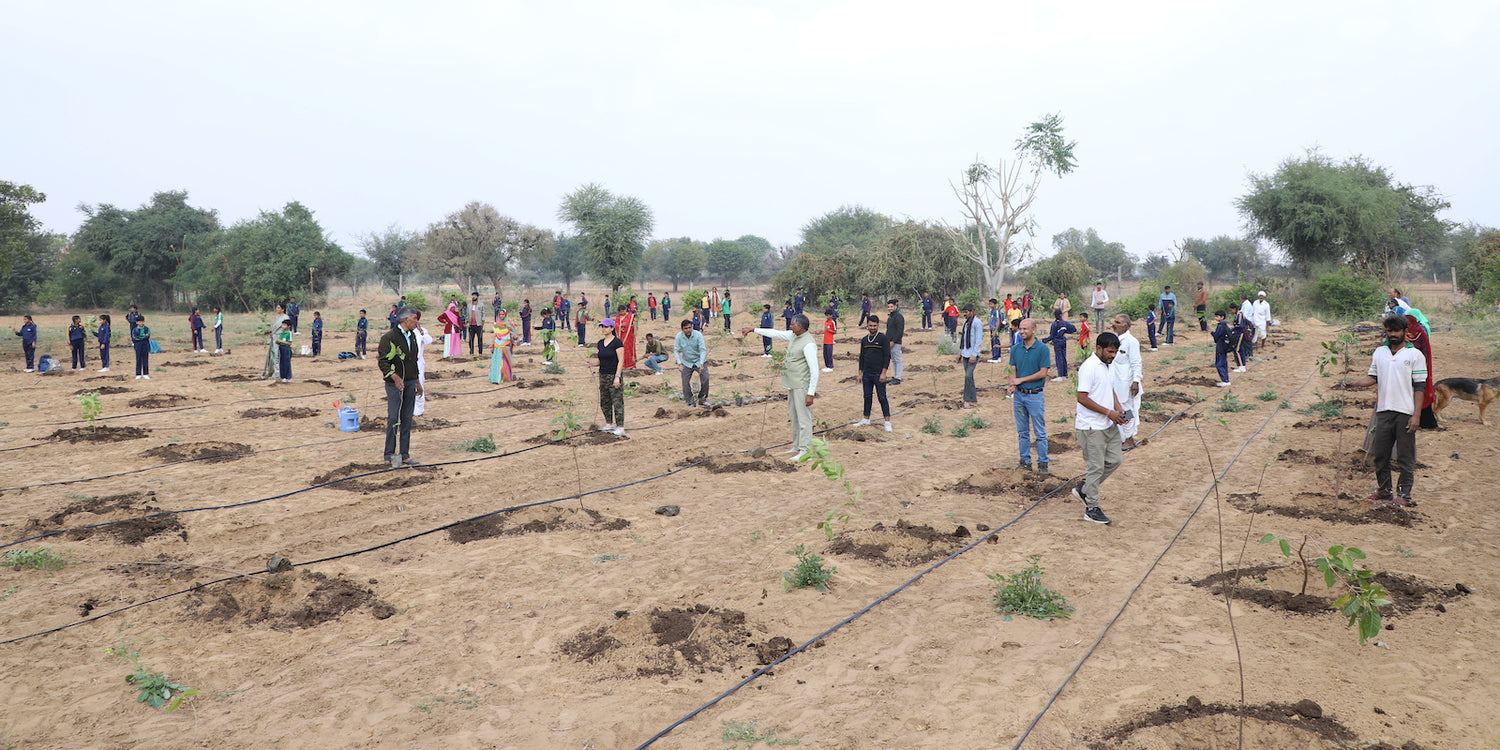
Connect with us
-
👥 Corporates
If you are looking for:
- 🌲 Tree Plantation Events
- 📊 CSR Projects
📧 corporate@growbilliontrees.com
📞 +91 9699723523
💬 WhatsApp (Only): +91 9370599291
🕒 Mon - Sat | 10am - 7pm IST
-
🧩 Tree Plantation NGOs
If you are looking for:
- 💰 Financial Assistance
- 🤝 Operational Support
📧 support@growbilliontrees.com
📞 +91 9699723523
💬 WhatsApp (Only): +91 9370599291
🕒 Mon - Sat | 10am - 7pm IST
-
🌼 Individuals
If you are looking for:
- 👥 Group Tree Plantation Drive
- 🌳 Bulk Tree Plantation
📞 +91 9699723523
💬 WhatsApp (Only): +91 9370599291
🕒 Mon - Sat | 10am - 7pm IST
Plantation Gallery
Trending
-
Trees for Mother
4.55 / 5.0
(148) 148 total reviews
Regular price From ₹ 299Regular priceUnit price / per -
Trees for Grandmother
4.56 / 5.0
(98) 98 total reviews
Regular price From ₹ 299Regular priceUnit price / per -
Trees for Birthday Celebration
4.55 / 5.0
(268) 268 total reviews
Regular price From ₹ 299Regular priceUnit price / per -
Trees for Wedding Anniversary Celebration
4.58 / 5.0
(194) 194 total reviews
Regular price From ₹ 299Regular priceUnit price / per -
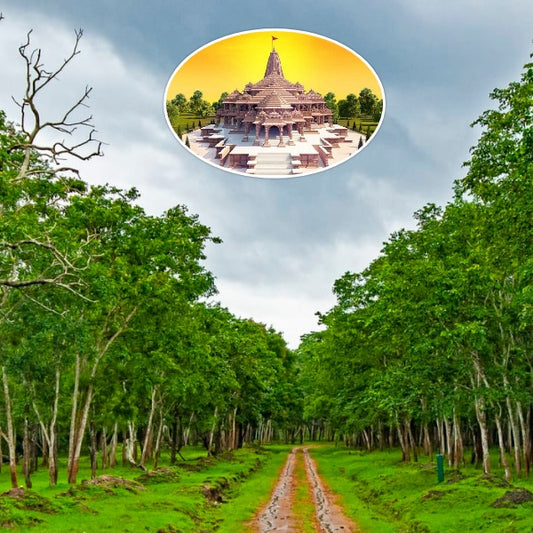 Project Closed
Project ClosedTrees for Shree Ram in Ayodhya Ji
4.7 / 5.0
(139) 139 total reviews
Regular price From ₹ 501Regular priceUnit price / per
Trees for Corporates
-
Trees for Employee Engagement
4.72 / 5.0
(40) 40 total reviews
Regular price From ₹ 49,950Regular priceUnit price / per -
Trees for Employees
4.46 / 5.0
(56) 56 total reviews
Regular price From ₹ 299Regular priceUnit price / per -
Trees for Clients
4.59 / 5.0
(68) 68 total reviews
Regular price From ₹ 299Regular priceUnit price / per -
Trees for Colleagues
4.45 / 5.0
(56) 56 total reviews
Regular price From ₹ 299Regular priceUnit price / per -
Trees for Farmers
4.59 / 5.0
(34) 34 total reviews
Regular price From ₹ 299Regular priceUnit price / per
Best Native Trees to grow near Bangalore: Metropolitan Foliage
Nestled amidst the dynamic urban landscape of Bangalore lies a rich tapestry of native trees, each contributing to the city's natural beauty and ecological balance. As Bangalore embraces sustainable development, the cultivation of native trees becomes imperative to foster urban greenery and enhance the city's livability. Here, we explore a diverse selection of native trees ideal for growing near Bangalore, each offering unique benefits to urban environments.
Banyan (Ficus benghalensis): With its expansive canopy and intricate aerial roots, the banyan tree provides shade and habitat for diverse flora and fauna, enriching Bangalore's urban ecosystem.
Neem (Azadirachta indica): Revered for its medicinal properties, the neem tree's resilient nature and pest-repelling qualities make it a valuable addition to Bangalore's green cover, contributing to a healthier environment.
Peepal (Ficus religiosa): Symbolizing spiritual significance, the peepal tree's broad leaves and tranquil presence offer sanctuaries for contemplation amidst Bangalore's bustling streets.
Indian Rosewood (Dalbergia sissoo): With its durable wood and elegant foliage, the Indian rosewood tree enhances Bangalore's parks and gardens while stabilizing soil near water bodies.
Indian Laburnum (Cassia fistula): Adorned with clusters of golden-yellow flowers, the Indian laburnum tree adds splashes of color to Bangalore's landscapes while attracting pollinators and enhancing biodiversity.
Jamun (Syzygium cumini): Bearing delicious purple fruits, the jamun tree supports local wildlife and provides nutritious snacks for Bangalore's residents, fostering a deeper connection to nature.
Mango (Mangifera indica): Celebrated for its succulent fruits and lush foliage, the mango tree thrives in Bangalore's tropical climate, offering shade and sweetness to urban dwellers.
Coconut (Cocos nucifera): With its versatile uses and iconic silhouette, the coconut palm graces Bangalore's streetscapes and parks, embodying the city's tropical charm.
Rain Tree (Samanea saman): Known for its wide-spreading canopy and nitrogen-fixing capabilities, the rain tree enriches Bangalore's soil and provides refuge for urban wildlife.
Indian Almond (Terminalia catappa): With its decorative foliage and nutritious nuts, the Indian almond tree adds aesthetic value and ecological benefits to Bangalore's green spaces.
Indian Cork Tree (Millingtonia hortensis): Fragrant and ornamental, the Indian cork tree beautifies Bangalore's landscapes while providing shade and shelter for residents and wildlife.
Flame-of-the-Forest (Butea monosperma): With its fiery orange blooms, the flame-of-the-forest tree adds vibrancy to Bangalore's streetscapes and parks, heralding the arrival of spring.
Indian Coral Tree (Erythrina variegata): Adorned with vivid red flowers, the Indian coral tree attracts pollinators and serves as a focal point in Bangalore's urban gardens and green spaces.
Indian Gooseberry (Phyllanthus emblica): With its tangy fruits and medicinal properties, the Indian gooseberry tree thrives in Bangalore's climate, offering both sustenance and shade.
Indian Beech (Pongamia pinnata): Valued for its oil-rich seeds and nitrogen-fixing abilities, the Indian beech tree supports sustainable agriculture and urban greening efforts in Bangalore.
Indian Laurel (Terminalia elliptica): Hardy and adaptable, the Indian laurel tree withstands urban stresses and contributes to Bangalore's green infrastructure, purifying the air and providing habitat for wildlife.
Cluster Fig (Ficus racemosa): With its edible figs and dense foliage, the cluster fig tree enhances Bangalore's biodiversity and serves as a food source for birds and mammals.
Indian Mast Tree (Polyalthia longifolia): Tall and graceful, the Indian mast tree adds vertical interest to Bangalore's skyline while offering shade and visual appeal to urban landscapes.
Indian Cork Fig (Ficus infectoria): With its fig-bearing branches, the Indian cork fig tree supports Bangalore's ecosystem by providing food for birds and bats.
Mahua (Madhuca longifolia): Cultural and ecological significance converge in the mahua tree, which produces edible flowers and supports biodiversity in Bangalore's urban green spaces.
Indian Sandalwood (Santalum album): prized for its fragrant wood and essential oil, the Indian sandalwood tree enriches Bangalore's landscapes with its aromatic presence.
Cannonball Tree (Couroupita guianensis): Unique and exotic, the cannonball tree adds intrigue to Bangalore's botanical gardens and parks with its spherical fruits and fragrant flowers.
Wild Almond (Sterculia foetida): With its large leaves and colorful fruits, the wild almond tree attracts birds and small mammals, contributing to Bangalore's urban biodiversity.
Wild Mango (Mangifera sylvatica): A wild counterpart to its cultivated cousin, the wild mango tree offers shade and sustenance to Bangalore's residents and wildlife.
Indian Gooseberry (Emblica ribes): Similar to Phyllanthus emblica, Emblica ribes thrives in Bangalore's climate, providing medicinal benefits and greenery to urban environments.
Indian Beechwood (Pongamia glabra): Fast-growing and nitrogen-fixing, Pongamia glabra supports Bangalore's reforestation efforts and urban greening initiatives.
Indian Coral Bean (Erythrina indica): Resilient and drought-tolerant, the Indian coral bean tree adds color and resilience to Bangalore's urban landscapes.
Indian Fir (Abies spectabilis): Though native to the Himalayas, the Indian fir adapts well to Bangalore's climate, offering evergreen foliage and a touch of mountainous charm to urban parks and gardens.
Indian Cork Oak (Quercus serrata): Durable and long-lived, the Indian cork oak tree thrives in Bangalore's urban environment, providing habitat for wildlife and enhancing the city's greenery.
Indian Laurel Fig (Ficus microcarpa): Versatile and adaptable, the Indian laurel fig tree adds shade and ornamental value to Bangalore's urban forests and green spaces.
Growbilliontrees: In the pursuit of greening Bangalore's urban landscape, initiatives like Growbilliontrees play a pivotal role. By collaborating with NGOs, corporates, and other stakeholders, Growbilliontrees provides the necessary technology, knowledge, and tools to optimize, organize, and monitor tree plantation activities. Through their concerted efforts, Bangalore can embark on a transformative journey towards a greener, healthier, and more sustainable future.
As Bangalore continues to evolve, let us not forget the importance of preserving and nurturing its native trees. By embracing these botanical treasures and leveraging the expertise of organizations like Growbilliontrees, we can ensure that Bangalore remains a vibrant, green city for generations to come.
Top Trees Planted
View allEvergreen Trees
Evergreen trees are essential for Bangalore's urban greenery, maintaining their foliage throughout the year and adding a touch of greenery to the cityscape regardless of the season. Varieties like Silver Oak and Indian Laurel offer not just shade but also a sense of continuity and vibrancy to the surroundings.
Fast-Growing Trees
In the fast-paced environment of Bangalore, fast-growing trees like Rain Tree and Bamboo Palm are invaluable additions to urban greenery projects. Their rapid growth ensures quick establishment, providing shade and improving air quality swiftly, which is crucial for a city constantly expanding its green cover.
Drought-Tolerant Trees
Given Bangalore's fluctuating water availability, drought-tolerant trees such as Neem and Pongamia are indispensable for sustainable urban greening efforts. These resilient species can thrive with minimal water, making them ideal candidates for maintaining green spaces even during dry spells.
Fruit-Bearing Trees
Introducing fruit-bearing trees like Mango and Jackfruit into Bangalore's urban landscape not only enhances its beauty but also provides a source of fresh produce for local residents. These trees attract wildlife, promote biodiversity, and offer an opportunity for urban dwellers to reconnect with nature through harvesting and enjoying seasonal fruits.
Native Flowering Trees
Native flowering trees such as Tabebuia and Jacaranda bring bursts of color and fragrance to Bangalore's urban environment, attracting pollinators and uplifting the mood of city dwellers with their seasonal blooms. Their presence not only beautifies the city but also contributes to its ecological health and resilience.
Shade Trees
Shade trees are crucial for creating comfortable outdoor spaces in Bangalore, offering respite from the intense tropical sun and fostering a sense of well-being among residents. Species like Rain Tree and Gulmohar are prized for their broad canopies and cooling properties, making them indispensable components of urban greening initiatives aimed at enhancing livability and sustainability in the Garden City.
You may like
-
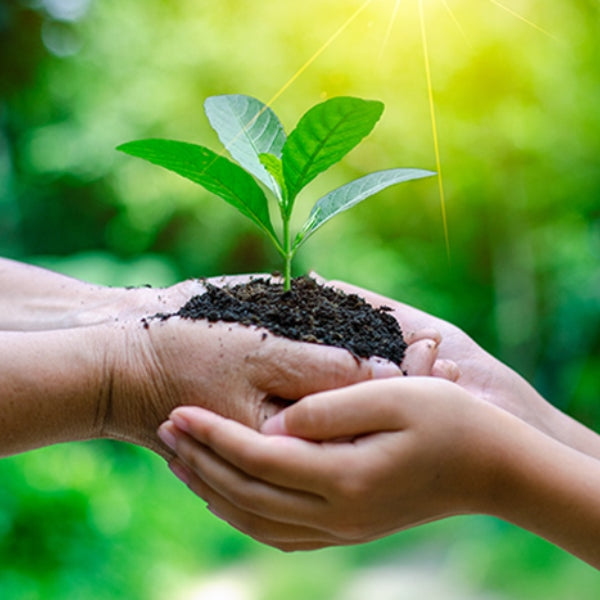
Gift a Tree
"Gift a Tree" is a concept where you can purchase and dedicate...
-

Trees For Shiv Ji
Trees For Shiv Ji is a meaningful initiative aimed at honoring Lord...
-

Tree plantation for Shri Ram
Embark on a sacred journey of environmental devotion with Tree Plantation for...
-

Tree Plantation on Navratri
Planting trees during Navratri is a meaningful way to honor the divine feminine...
-
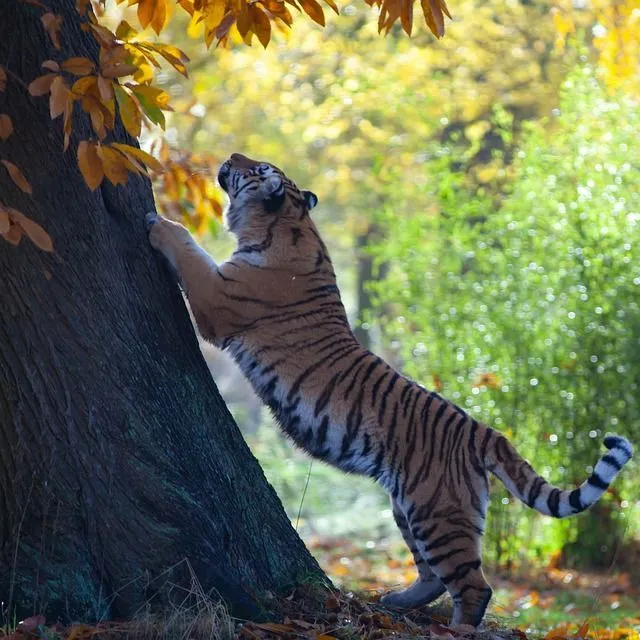
Tree Plantation by Cause
Tree plantation for a cause is a movement that aims to address...
Corporate Plantations
-
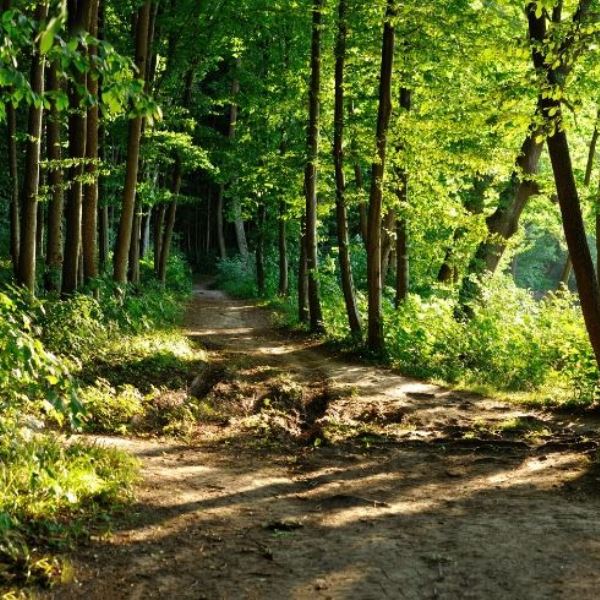
Trees for Corporates
Trees for Corporates embodies a strategic commitment by businesses to environmental sustainability...
-

Tree Plantation for CSR
Tree plantation for Corporate Social Responsibility (CSR) involves companies and organizations actively...
-

Tree Plantation for SDG
Tree plantation stands as a multifaceted solution to a myriad of global...
-

Tree Plantation for ESG
Tree plantation emerges as a powerful tool to address ESG goals effectively....
-

Tree Plantation by Location
Tree Plantation by Location is a dynamic initiative aimed at tailoring tree...
FAQ
What are the best native trees to grow near Bangalore for urban greenery?
Bangalore's urban environment thrives with native trees like the Indian Coral Tree (Erythrina indica), Indian Gooseberry (Phyllanthus emblica), Rain Tree (Samanea saman), and Indian Laburnum (Cassia fistula). These species are well-adapted to the local climate and soil conditions, offering shade, biodiversity, and ecological balance.
How can I ensure the successful growth of native trees in Bangalore's urban environment?
Successful tree growth in Bangalore hinges on proper site selection, adequate watering, regular maintenance, and protection from pests and diseases. Choosing the right native species suitable for the specific location, considering factors like soil quality and sunlight availability, is pivotal for their flourishing.
Are there any specific challenges in growing native trees in Bangalore's urban areas?
Bangalore's urban areas present challenges such as rapid urbanization, soil degradation, and water scarcity. However, with proper care and community involvement, native trees can withstand these challenges and thrive, contributing significantly to urban greenery and ecological resilience.
What are the benefits of planting native trees near Bangalore?
Planting native trees near Bangalore yields numerous benefits, including improving air quality, reducing heat island effects, enhancing biodiversity, and providing habitat for local wildlife. Additionally, native trees require less water and maintenance compared to non-native species, making them ideal for sustainable urban greening.
How can I get involved in native tree planting initiatives in Bangalore?
You can participate in native tree planting initiatives in Bangalore by joining community tree planting events, volunteering with environmental organizations, or supporting initiatives like ours at GrowBillionTrees.com through donations or sponsorship. Your involvement contributes to a greener and more sustainable Bangalore.
What is the impact of urban greenery on the quality of life in Bangalore?
Urban greenery in Bangalore enhances the quality of life by promoting physical and mental well-being, reducing stress, and fostering community cohesion. Moreover, it plays a vital role in mitigating climate change, conserving water resources, and creating resilient urban ecosystems.
Are there any government regulations or guidelines for planting native trees in Bangalore?
Yes, there are government regulations and guidelines for planting native trees in Bangalore, including species selection criteria, planting methods, and maintenance standards. Adhering to these regulations ensures the successful establishment and long-term sustainability of urban greening initiatives.
How does GrowBillionTrees.com contribute to native tree planting efforts in Bangalore?
GrowBillionTrees.com actively contributes to native tree planting efforts in Bangalore by organizing tree planting campaigns, collaborating with local stakeholders, and raising awareness about the importance of native tree species. Through our initiatives, we aim to empower communities to create a greener and healthier Bangalore for future generations.
Most Popular
-
Trees for Mother
4.55 / 5.0
(148) 148 total reviews
Regular price From ₹ 299Regular priceUnit price / per -
Trees for Grandmother
4.56 / 5.0
(98) 98 total reviews
Regular price From ₹ 299Regular priceUnit price / per -
Trees for Birthday Celebration
4.55 / 5.0
(268) 268 total reviews
Regular price From ₹ 299Regular priceUnit price / per -
Trees for Wedding
4.7 / 5.0
(30) 30 total reviews
Regular price From ₹ 299Regular priceUnit price / per -
Trees for Grandfather
4.49 / 5.0
(102) 102 total reviews
Regular price From ₹ 299Regular priceUnit price / per
Similar Queries
India , Agra , Ahmedabad , Akola , Aligarh , Allahabad , Ambala , Amravati , Amritsar , Aurangabad , Bangalore , Bareilly , Begusarai , Bhatpara , Bhavnagar , Bhilai , Bhiwandi , Bhiwani , Bhopal , Bhubaneswar , Bidar , Chandigarh , Chennai , Coimbatore , Dehradun , Dhanbad , Faridabad , Gaya , Ghaziabad , Gorakhpur , Gulbarga , Guntur , Guwahati , Gwalior , Hindupur , Hosur , Howrah , Hubli-Dharwad , Hyderabad , Indore , Jabalpur , Jaipur , Jalandhar , Jammu , Jhansi , Jodhpur , Kalyan-Dombivli , Kanpur , Karimnagar , Khammam , Kolkata , Kota , Kozhikode , Loni , Lucknow , Ludhiana , Madurai , Mangalore , Meerut , Moradabad , Mumbai , Mysore , Nagpur , Nanded , Nashik , Navi Mumbai , Nizamabad , Noida , Panipat , Patna , Pimpri-Chinchwad , Pune , Raipur , Rajkot , Ranchi , Rourkela , Saharanpur , Salem , Sangli , Shimoga , Shivamogga , Sikar , Siliguri , Solapur , Sonipat , Srinagar , Surat , Thane , Thiruvananthapuram , Tiruchirappalli , Tirunelveli , Udaipur , Ulhasnagar , Vadodara , Varanasi , Vasai-Virar , Vijayawada , Visakhapatnam , Warangal , Best Native Trees to Grow in India , Best trees to grow near Delhi NCR
Andhra Pradesh , Arunachal Pradesh , Assam , Bihar , Chhattisgarh , Goa , Gujarat , Haryana , Himachal Pradesh , Jharkhand , Karnataka , Kerala , Madhya Pradesh , Maharashtra , Manipur , Meghalaya , Mizoram , Nagaland , Odisha , Punjab , Rajasthan , Sikkim , Tamil Nadu , Telangana , Tripura , Uttar Pradesh , Uttarakhand , West Bengal



